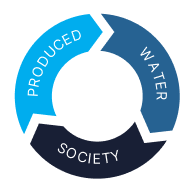Some key takeaways from the Produced Water Society’s virtual operators’ panel, held on November 18. PWS brought together panelists from key operators in the US to discuss how the growing…
Registration and Abstract Submissions for Permian Conference August 12-14 2024. COMING SOON
Menu
An account is required to be able to access the abstract submission form,
but you can register an account without paying the $150 membership fee.
but you can register an account without paying the $150 membership fee.
